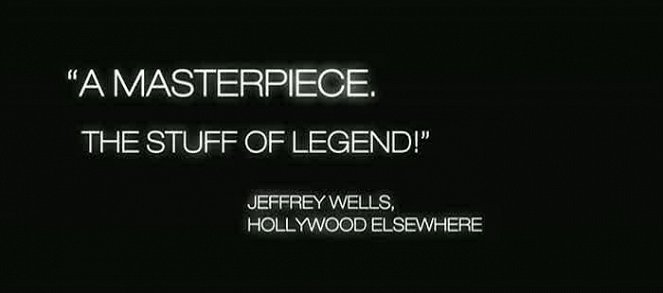Réalisation:
Cristian MungiuScénario:
Cristian MungiuPhotographie:
Oleg MutuActeurs·trices:
Anamaria Marinca, Laura Vasiliu, Vlad Ivanov, Alexandru Potocean, Tania Popa, Cerasela Iosifescu, Doru Ana, Eugenia Bosânceanu (plus)VOD (1)
Résumés(1)
Ottila et Gabita partagent une chambre dans la cité universitaire d'une petite ville. Gabita est enceinte et l'avortement est un crime. Les deux jeunes femmes font donc appel à un certain M. Bébé pour résoudre le problème. Mais elles n'étaient pas préparées à une telle épreuve. (BAC Films)
Critiques (6)
Romania under Ceausescu, the year of Our Lord 1987. Waiting in line to buy food, widespread bribery and other totalitarian wounds on the soul of society. If you get pregnant during this period, there’s not much to look forward to. Especially if you are a poor student at an advanced stage of pregnancy who cannot keep the child. Trials and tribulations surrounding an abortion and life toward the end of Ceausescu’s regime in general. Raw, perfectly acted and, for us Czechs, a topic close to our hearts. A strong and very powerful testimony with extraordinary minimalist camerawork.
()
I definitely don't claim that this is a bad movie, but the expectations were too high in this case, and during the final scene, I was thinking, is this really the end? Is there nothing else coming? Are you telling me this film won at a category A festival and is considered by film fans and critics alike as the European film event of the year? The thing is, this film somehow deceives in its substance and offers substitute emotions, or rather, in my opinion, it fails precisely in what it is most adored for, i.e., a statement about a certain country and political system. Many reviews enthusiastically admire its amazing authenticity, but how many of those viewers experienced communist Romania first-hand? I haven't been there, but from the testimonies of eyewitnesses, I know that even ten years after the revolution, some places in the countryside had no electricity, many remote areas are today economically worse off than during Ceausescu's regime, and the mountainous regions are depopulating. Comparing the former Romania to Czechoslovakia is misguided, as the situation there was disproportionately worse and, above all, systemically different. The abortion that is at the core of Mungiu's film, is presented as purely a technical problem. Those girls, just like the other film characters, are not victims of the system, but part of it. Polish films of moral unrest were able to address moral conflict issues in the behavior of their characters during the deep communism of the 70s and 80s, whereas here, a college student undergoes an abortion of a fetus that is merely an obstacle to her career. We learn very little about the system itself, and it is necessary to realize that abortions were also prohibited in a number of European countries in the recent past, and a similar film could be made in present-day Poland, in a democratic system. Since 1993, abortion there has been limited to the absolute minimum of possibilities. That pre-revolutionary Romania was an inhospitable and freedom-restricted place to live in is quite evident in some places, but that is just a secondary motive. If the main problem for Romanian college students in dormitories was obtaining a certain brand of Western cigarettes, then those girls really didn't have a bad life. In short, it is watchable but, from my perspective, also an overrated film with an unclear concept. Overall impression: 60%.
()
Cinema verité in cool artsy circles. A film that doesn’t depart from reality even in a single scene or dialogue, always leaving the viewer with the characters a bit longer than they would like. And it works remarkably well, though I didn’t see anything masterful or very progressive behind the unarguably seminal and strong premise and ideas, but “only” distinctively precise filmmaking and the most approachable work by Béla Tarr. 80%
()
Vu dans le cadre du « Challenge Tour 2015 : 30 jours de cinéma mondial ». Film numéro 8 – Roumanie. Le nouveau numéro un de mon classement. Ce film, j’en avais entendu parler il y a longtemps, mais depuis, je n’ai pas pu mettre la main dessus pour le voir. Je comprends tout à fait qu’il ait marqué des points chez les Français, car c’est le genre de thèmes qu'ils apprécient. L’ambiance glaciale de la chambre d’hôtel et du foyer d’étudiants dans la Roumanie socialiste a pénétré jusqu'au cœur de mon chaleureux appartement du quartier praguois de Dejvice. Bien qu’il s’agisse d’une histoire en huis clos dans laquelle on s’exprime peu à l’exception d’une fête de famille, c’était tellement tendu qu’à certains moments, j'en oubliais de respirer. J’ai véritablement été époustouflé par la prestation d’Anamarie Marinci et par celle de l’horriblement vicieux et terriblement froid Vlad Ivanov. Je ne serais d'ailleurs pas étonné que ces acteurs reçoivent des offres à la pelle après ça. Un spectacle à couper le souffle !
()
In the flood of all sorts of family or relationship wannabe dramas from the West, Romanian filmmakers came out in 2007 with an excellent human story which managed to surpass even my very favorite (and also un-American) Amores Perros in its emphasis, controversy, and above all in its message. Raw, European, powerful, and above all – believable. A perfect drama.
()

